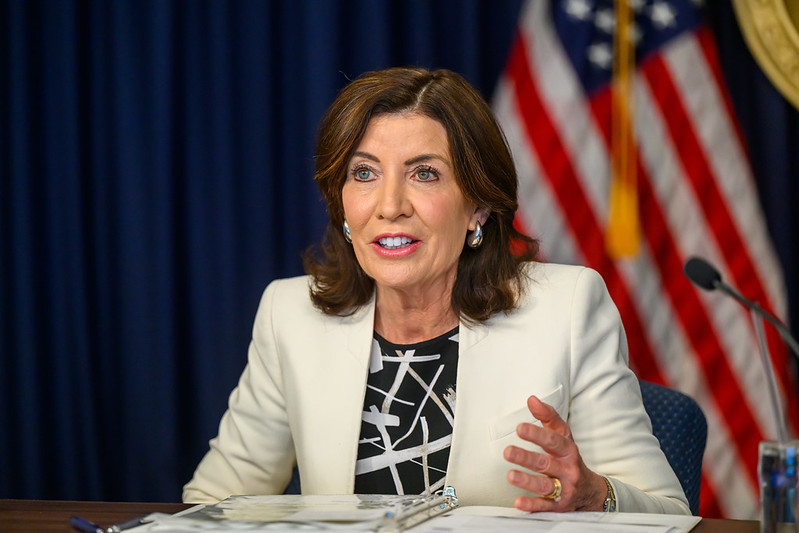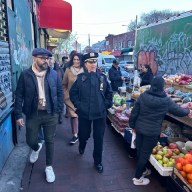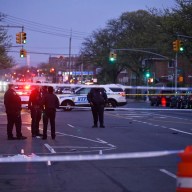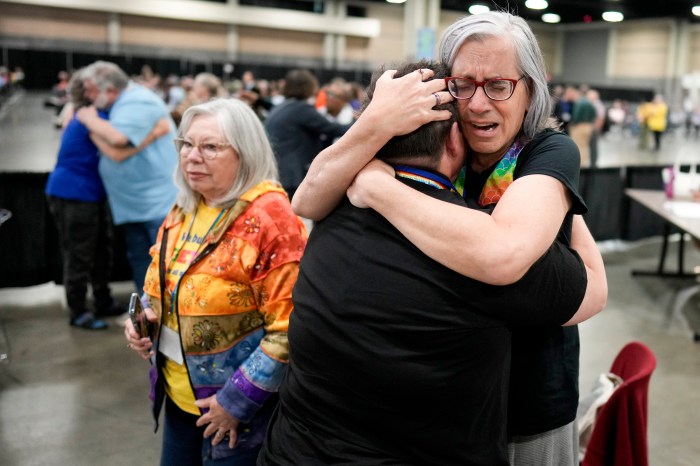By Bob Harris
In the past few months two Queens civic association presidents have been elected as community board chairpersons. Jerry Iannece, who has been president of the Bayside Hills Civic Association, has been elected chairman of Community Board 11 and Richard Hellenbrecht, who had been president of the Bellerose Commonwealth Civic Association, has been elected chairperson of Community Board 13. It is interesting that Diane Cohen, who has been active in the Bayside Hills Civic Association, has been district manager of Community Board 8 for several years.
Each community board has 50 members appointed by the borough president with the advice of the local city councilperson. Community board members elect the chairperson and are volunteers who represent their local communities. They debate issues concerning zoning, police protection, city services, school needs and park needs, and they can vote on resolutions which serve as recommendations to city agencies. Their votes are non-binding on the city agencies but are often followed. The community board chairperson has to keep the board functioning smoothly.
Iannece has been president of the Bayside Hills Civic Association for the past six years. He assumes the chair of CB 11 as only the third person to occupy the position in the 33 years since community boards were created. Predecessors were Claire Shulman, who eventually became Queens Borough President, and Bernard Haber, who took over the position in 1972 when Shulman moved to Queens Borough Hall.
Richard Hellenbrecht has been a longtime civic leader. From his Bellerose Commonwealth Civic activities he has become involved with the Queens Civic Congress, which is an umbrella organization of approximately 95 civic associations in Queens. He has been a vice president of the QCC, edited the Queens Congressional, which is the QCC newsletter, and has been chairperson of the Platform Committee of the QCC for 2002.
Another active civic leader has just been named “Supervisor of the Year” for School District 27 by the Council of Supervisors and Administrators. She is Barbara Embriano, a resident of Flushing, who has been principal of Public School 90 in Richmond Hill for the past seven years. Embriano was honored for creating a literacy and technology center in her school and as an assessor for the National Association of School Principals. I have known her for years as the editor of the Bowne Park Civic Association newsletter.
Embriano raised three children, volunteered in scouting, administered a school and found the time to edit a civic association newsletter, attend civic association meetings and be involved with countless other organizations. She feels that “Every citizen of New York City — man, woman and child — should give a day of service by doing something special for our city every year.”
It is interesting that people such as lannece, Hellenbreht and Embriano have donated time and energy to their civic associations and have been honored by their peers for their community service. As mentioned in earlier editions of the Civic Scene, several of our council members have served as civic association presidents or on boards of their local civic associations. It seems that volunteer activities for one’s community can lead to higher positions.
Good and Bad News of the Week
As you read this column I hope the school funding and control problem has been resolved. As I write this, about two weeks ago there seems to be a budget passed by Albany which the media says will give the schools a boost in funding, yet in other media reports Chancellor Levy says the schools still could face $205 million in cuts. So what is the situation?
It is very sad that the politicians have not finalized the budget and the governance situation. The schools will again start in September but planning should have been started. It takes months to recruit the necessary staff members for our hundreds of schools. Books, computers, other technological equipment, desks, file cabinets, chalk and paper have to be ordered.
How much money will there be to order all these materials? Will the chancellor stay on? Will there be money available to start programs such as mentoring and new teacher and supervisor training, as well as for building and staffing the very expensive smaller schools being planned?
Policy decisions have to be made. As the weeks drag on, prospective teachers may decide to go into other fields for a while or take a master’s degree until a contract is finalized and the governor, mayor, Assembly and Senate sort out their priorities as politicians jockey for political advantage. Dates are set because the fiscal year starts on July 1 and the budget also must be approved by the City Council which has its own priorities. The schools will open in September, the NYPD will keep functioning and the libraries will open — but at what cost!

































